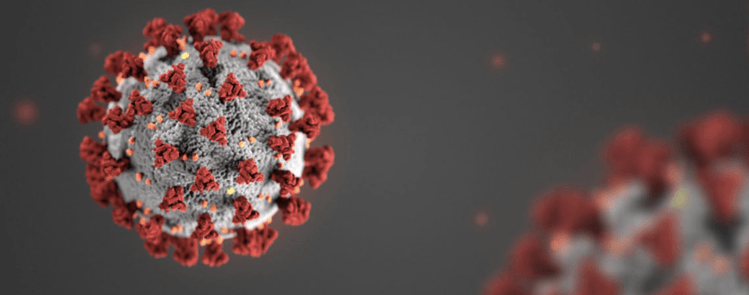Surgical and non-surgical Orthopedic care for adults & children.
It is a new day.
Let Dr. DeGroote get you back in the game; whether it's for work, sports or life.
Click here to review your health record, pay online or review your statements
Click here Book a New Appointment or Follow up Appointment
Specialities
Injury & Arthritis
Ethically using STEM cells for the treatment of arthritis and injury has been a hallmark of Dr. DeGroote for over 2 decades. Taking care of the severe trauma injuries has always been his passion. Hopefully, you will not need it, but if you do Dr. DeGroote is there to give you the very best in Southeast Alaska.
Know more
Sports Medicine
Dr. DeGroote knows injury first hand as a collegiate hockey and rugby player. He understands the importance of getting back to play. He has treated athletes from the NHL, NFL and many semipros. He has also been team surgeon for the USHL, Wayne University Football and is acting consultant to the St. Louis Blues and Calgary Flames NHL Alumni.
Know more
Lower Back Pain
Low back pain can have a deep effect on you and everyone around you. You may have facet arthritis. A diagnostic steroid injection maybe the first step in relief.
Know more
Russell DeGroote MD FRCSC
Dr. Russell DeGroote was selected by the University of Calgary Medical Program after only 2 years of undergraduate education in Human Kinetics. He completed his residency in orthopedics at the University of Calgary. He has been a team physician for the USHL, and has treated many NHL and NFL players in his career. He is an Associate Clinical Professor for the University of West Virginia and orthopedic consultant for the St. Louis Blues and Calgary Flames NHL Alumni.
More about me
Recent posts

By Russell DeGroote
•
09 Aug, 2020
Stem Cells Explored In Detail You’re probably familiar with the term “stem cells,” but may not know precisely what they are or how they can be used in medicine. Stem cells are undifferentiated cells, which means that they have the potential to develop into different kinds of cells and tissue in the body; scientists call them pluripotent for this reason. Up until the mid-1990s, the general understanding was that adults only had one kind of stem cells, found in their bone marrow. But a number of discoveries in the 90s changed our understanding of stem cells and brought about a complete revolution in medicine that we are still going through today. Mesenchymal stem cells (MSCs), which were traditionally found in bone marrow, could also be obtained from other tissues in the body. “The current scientific evidence has now provided evidence that every tissue in the body has tissue-specific progenitors. Thus, muscle has satellite cells (myogenic progenitors) and a separate yet distinctive class of MSCs. The MSCs from bone marrow, muscle and tendon have the same general properties, but their basic chemistries are quite different as controlled by both their tissue of origin and the genome of the donor.” Dr. DeGroote was among the first to realize that this meant that the distinctive class of MSCs from bone marrow, muscle and tendons could not only be used to enhance patient recovery time from orthopedic surgery – but even avoid surgery altogether. He began treating patients with a combination of MSCs and platelet-rich plasma (PRP) as an alternative to surgery, and produced amazing results in his professional athletes. Patients who had presented with serious injuries or chronic conditions rapidly improved using this method. This technique was so safe and successful that the FDA eventually approved it for general use. If you or someone you know is suffering from pain or reduced mobility due to an injury, loss of cartilage or tissue, or a chronic condition such as arthritis, contact Dr. DeGroote’s office (907-247-9999) today to learn how his use of MSCs and PRP can help. Most cases can be treated successfully with stem cell therapy alone, which means you can avoid the pain, extended recovery, and risks associated with surgery. And because stem cell therapy is safe and FDA-approved, it can be repeated as necessary without any additional risks to the patient.

By Russell DeGroote
•
04 Apr, 2020
The COVID-19 pandemic has required that the country take protective measures to prevent the spread of the disease. To this end, many hospitals have postponed elective surgeries to help ensure that their resources are available for severely ill patients who may need them. An elective surgery is a procedure that is done for a medical condition that is not urgent or life-threatening. Many orthopaedic procedures fall into this category. While an orthopaedic condition may be painful or limit function, it is usually not life-threatening and surgery can be safely postponed. Coronavirus Many hospitals are postponing elective surgeries to prepare for a spike in coronavirus cases. A delay in your surgery may be disappointing. You may have already asked for time off from work for the procedure or arranged for a friend or family member to help during your recovery at home. Nevertheless, the COVID-19 pandemic has created an unexpected national emergency and you may be asked to postpone your procedure until the crisis is under control. What can you do in the meantime? In many cases, there are some simple nonsurgical treatments that can help alleviate painful symptoms until your surgery can be rescheduled. Orthopaedic Conditions and Nonsurgical Treatments Listed below are several common orthopaedic problems, along with some frequently recommended nonsurgical treatments. If you are already doing some of these treatments, you can continue on with them until you are rescheduled surgery. Arthritis You may be waiting to have joint replacement surgery on your hip, knee, shoulder, or ankle. More than likely this is due to painful arthritis in the affected joint. Until your surgery can be rescheduled, the following treatments may be helpful: Changing your activities to avoid doing things that cause painful symptoms Using nonsteroidal anti-inflammatory drugs (NSAIDs) to control pain and swelling Applying either ice or heat to the affected joint, depending on which is more comfortable for you In certain situations, an injection of a corticosteroid into the joint can help relieve pain until your surgery can be rescheduled. If you are suffering from arthritis in your hip or knee, try to limit walking and avoid stairs as much as possible. If you have a painful shoulder, avoid heavy overhead lifting. In addition, it is always important to exercise as this can preserve range of motion in the affected joint. Sports Injuries If you are awaiting surgery for a sports injury—such as a labral tear in the shoulder or an anterior cruciate ligament tear in the knee—exercise or physical therapy can help you maintain range of motion and strength in the affected joint. If your knee is unstable, you should avoid activities that involve pivoting, jumping or rapidly changing direction, as these actions might cause your knee to give out and result in a fall. If you have a meniscus tear in your knee and plan to have arthroscopic surgery, use of a knee support or knee brace and anti-inflammatory medication may help alleviate your symptoms until the procedure can be done. Spine Problems Even though you may be in pain, spinal surgery can often be delayed. Nonsurgical treatment consists of rest and avoiding activities that could make your pain worse—such as bending or lifting. Nonsteroidal anti-inflammatory drugs and pain medication or muscle relaxants can often help to lessen your symptoms until your surgery can be rescheduled. If you have been on an exercise or conditioning program, you may wish to continue. You should notify your doctor, however, if you experience neurologic changes such as weakness or numbness in your arms or legs. Carpal Tunnel Syndrome Symptoms from carpal tunnel syndrome can often be quite painful. If your surgery is postponed, you may get relief from wearing a wrist splint at night and from taking anti-inflammatory medication. Emergency Surgery Most hospitals will allow procedures that need to be done on an emergency or urgent basis to go forward. Emergency or urgent orthopaedic procedures may include: Fractures in which the pieces of bone are out of place Tendon ruptures Open wounds Infections Bone tumors Disk herniations in the spine that cause a loss of feeling or movement in a limb Some of these conditions require that surgery be done right away, others within a few days. Communication If you have any questions or problems during the pandemic, it is important to maintain communication with the office. Often, a simple telephone call may be enough to help you get by if you have a routine orthopaedic problem or until you can have your rescheduled surgery. I now offer the option of a video teleconference during which you can speak to your me face-to-face, describe your symptoms, and ask questions. In some cases, this may allow you to show a picture or live-stream of a problem—such as a swollen joint or an open wound. I will do all I can to help treat your orthopaedic problems during the pandemic. If you experience non-orthopaedic problems that could be related to a viral illness, such as fever, vomiting, dehydration, or shortness of breath, contact your regular physician immediately. For more information The Centers for Disease Control has created a helpful website to provide patients and healthcare professionals with the most recent updates about COVID-19: Coronavirus (COVID-19)
Ice Hockey Rink in Ketchikan
Help me build an ice hockey rink in Ketchikan. All proceeds from the purchase of the Alaska Hockey Hoodie will go to the ice rink project.
Buy on 13Teams.com
Get my posts directly to your inbox
Contact Us
Thank you for contacting us.
We will get back to you as soon as possible.
We will get back to you as soon as possible.
Oops, there was an error sending your message.
Please try again later.
Please try again later.



